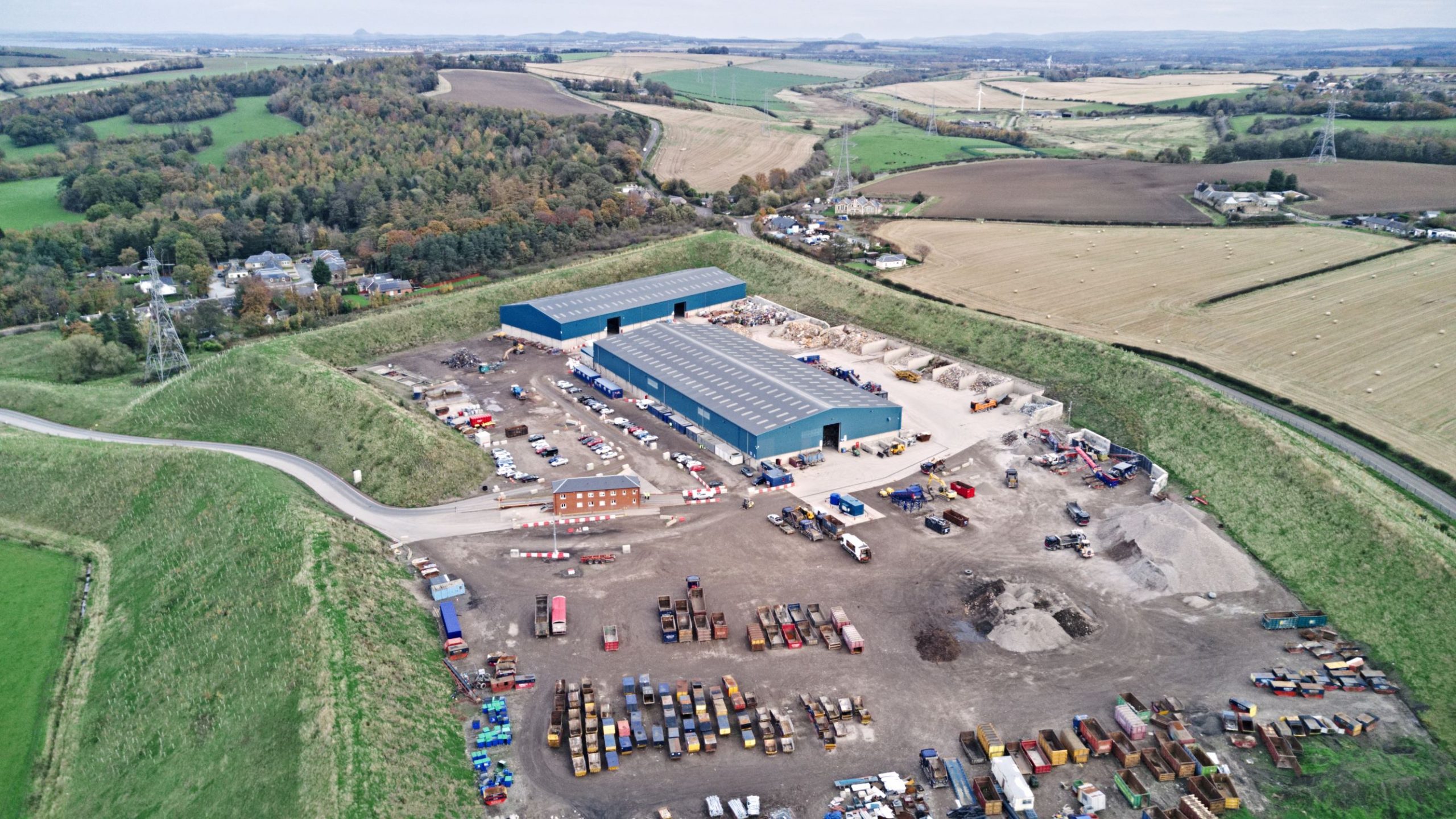In Spring 2019, Tarmac began working with Hamilton Waste and Recycling to enhance the sustainability of its operations at its cement plant in Dunbar, Scotland. Solid recovered fuel (SRF) was produced as an alternative, sustainable energy source, decreasing reliance on fossil fuels and the plant’s overall carbon footprint.
SRF is produced at Hamilton Waste’s site from non-recyclable, waste material, using a Lindner shredder. The fuel is then transported and stored at Tarmac’s cement plant.
“The production of SRF carries a high fire risk which, if not managed properly, can impact on the safety of people, machinery and other resources,” says James Mountain, director, Fire Shield Systems. “The safe storage of any flammable materials also requires careful planning and consideration.
“Both Tarmac and Hamilton wanted to ensure their sites remained as safe as possible and, as a result, we were asked to assess all of the relevant fire risks and design two, bespoke, automatic systems which would protect both the process and storage areas.
“Fire Shield Systems surveyed both our production site and Tarmac’s storage site to develop a cost-effective solution which was third-party accredited and approved by both our insurers and the Environment Agency,” says David Hamilton, director, Hamilton Waste.
Protecting production
“For the production site at Hamilton Waste, a fire cannon and organic class A wetting agent, operated by a multi-zonal, flame-detection system was installed,” says James. “This gave targeted suppression, offering fast protection and minimal clean up.
“The Dafo system – a standalone fire suppression system – was also installed for the protection of the machinery-drive enclosure. This system offers robust and reliable, linear, heat detection, using mains power and a stored-nitrogen cartridge to operate the foam hybrid wetting agent to provide maximum protection.”
Safeguarding storage
“For the SRF storage at Tarmac’s Dunbar plant, a type-tested, water spray system was selected for its efficient water usage and subsequent reduction of contaminated run offs,” says James.
“The water spray system operates with fast-acting, IR3 flame detection which means, in the event of activation, any operations downtime is minimised.”
Results
“We’ve used other systems in the past, but this situation required a more specialised and technical solution,” explains David. “Fire Shield’s experience in installing similar systems gave us confidence in the team’s expertise.
“From start to finish, Fire Shield has been very professional.
“We couldn’t fault the service. They’ve delivered the best-in-class and most cost-effective solution to a very high standard. We would absolutely recommend Fire Shield Systems to other businesses looking to improve the fire safety of their operations.
“We couldn’t be happier with the results.”
Contact us
Do you own or operate a business that needs fire protection?
Call us today on 0800 975 5767, or fill in our contact form, to speak with a member of our team.


